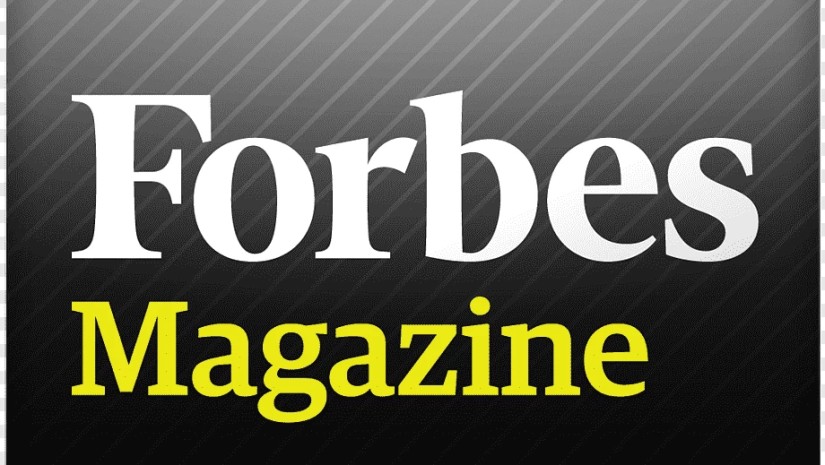Austin Russell, the 28-year-old Luminar Technologies CEO who is seeking to buy Forbes, has requested an extension of a Nov. 1 deadline to finalize his $800 million bid, sources told Axios.
What's happening: Forbes' owner granted the request late Monday night, extending the deadline by roughly two weeks, people close to the deal told Axios.
Of note: Forbes' owners and its board have an incentive to close the deal. Russell's bid values the company at $800 million, a considerable premium over previous valuations of the company, including one to take the company public at a $620 million valuation.
- However finding new investors at that price is challenging, and several strategic investors have passed on the Forbes deal because the valuation is too high.
- If Russell fails to close the deal even with this extension, Axios is already aware of at least one other buyer preparing a rival bid.
Be smart: Most of the money to buy Forbes isn't coming from Russell, who runs the publicly traded electric vehicle tech company Luminar Technologies.
- Russell inherited the deal to buy Forbes from Indian investment firm Sun Group, which was dropped as the lead investor on the bid in April amid regulatory concerns.
- Russell has been pushing to replace as much foreign cash on the cap table as possible over the past nearly six months.
The intrigue: Representatives for Russell have said that Russell's bid is "substantially oversubscribed, with over $2 billion of demand" from mostly American investors. But "demand" doesn't mean the funds are in hand.
- Sources told Axios that the group is scrambling to replace the hundreds of millions of dollars in the deal that was originally committed by Sun Group vice chair Shiv Khemka.
- Sun Group and Khemka have ties to Russia, which has sparked concerns from regulators.
- As Axios has reported, Khemka is putting roughly $300 million into the deal, but his percentage of carried interest has been reduced to a point where the deal shouldn't spark regulatory concerns.
- At least $100 million originally committed by Khemka was funneled through two of Khemka's daughters, who were born in the U.S. and live in New York.
- Axios has reported that other foreign investors, including Kenyan businessman Julius Mwale, also agreed to put money into the deal, but not as much as Khemka.
Between the lines: According to a copy of the latest share purchase agreement signed by the board on May 12, Russell had until Nov. 1 to close the deal unless some sort of an extension was granted.
- In recent days, lawyers representing Russell have reached out to Forbes' current majority owner, a Hong Kong-based investment group called Integrated Whale Media (IWM), to discuss extending the deadline by two weeks.
- IWM's Jeffrey Yam didn't respond to the request for comment. Forbes didn't comment. Representatives for Russell did not respond to requests for comment.
The big picture: The Forbes deal has been mired in controversy since it was announced in May, mostly due to the lack of clarity around who is putting up the cash to support Russell's bid.
- Russell has managed to pull together a group of Hollywood heavyweights to serve on the firm's board if and when a deal closes, including actor Kevin Hart and YouTube star Jimmy Donaldson, aka "MrBeast."
- Russian businessman Magomed Musaev, who purchased the license to Forbes Russia in 2018, has claimed in recordings obtained by Axios and the Washington Post to be the mastermind behind the Forbes deal but has told Axios on the record, "I am not investing any money in the Forbes bid. Zero."
- Musaev is the president of GVA Capital, an investment firm that invested in a $20 million seed round for Luminar.
Our thought bubble: Russell and his associates in the bid to buy Forbes don't want any further regulatory or reputational headaches, which is why they are trying to push Khemka's money off the cap table.
What to watch: If the deal does close — as participants told Axios they expect it to — Forbes' new owners will face pressure to disclose who is funding Russell's bid.
- It's unclear how Forbes' newsroom would disclose any conflicts of interest if they don't know the deal's details or the investors' identities.
















